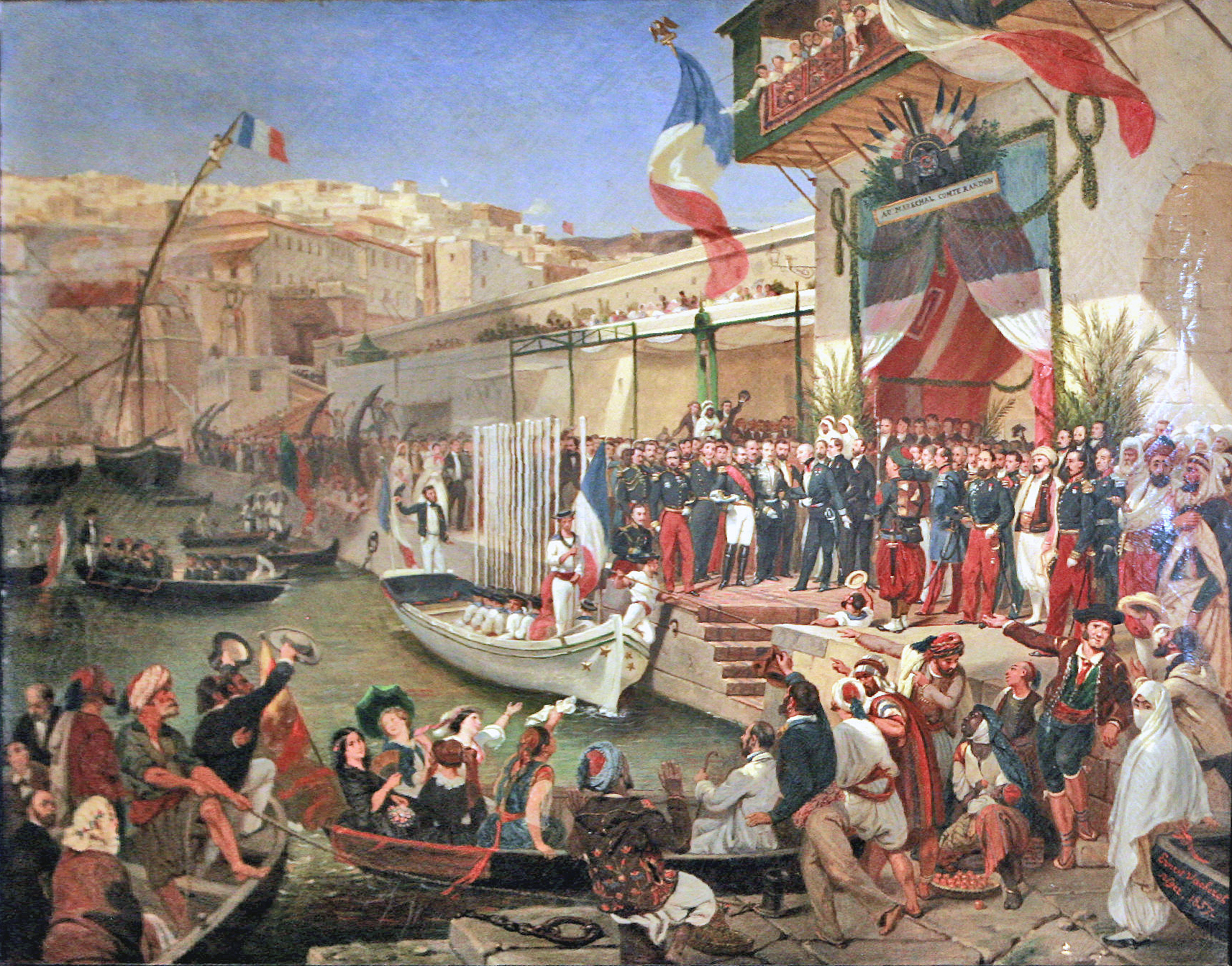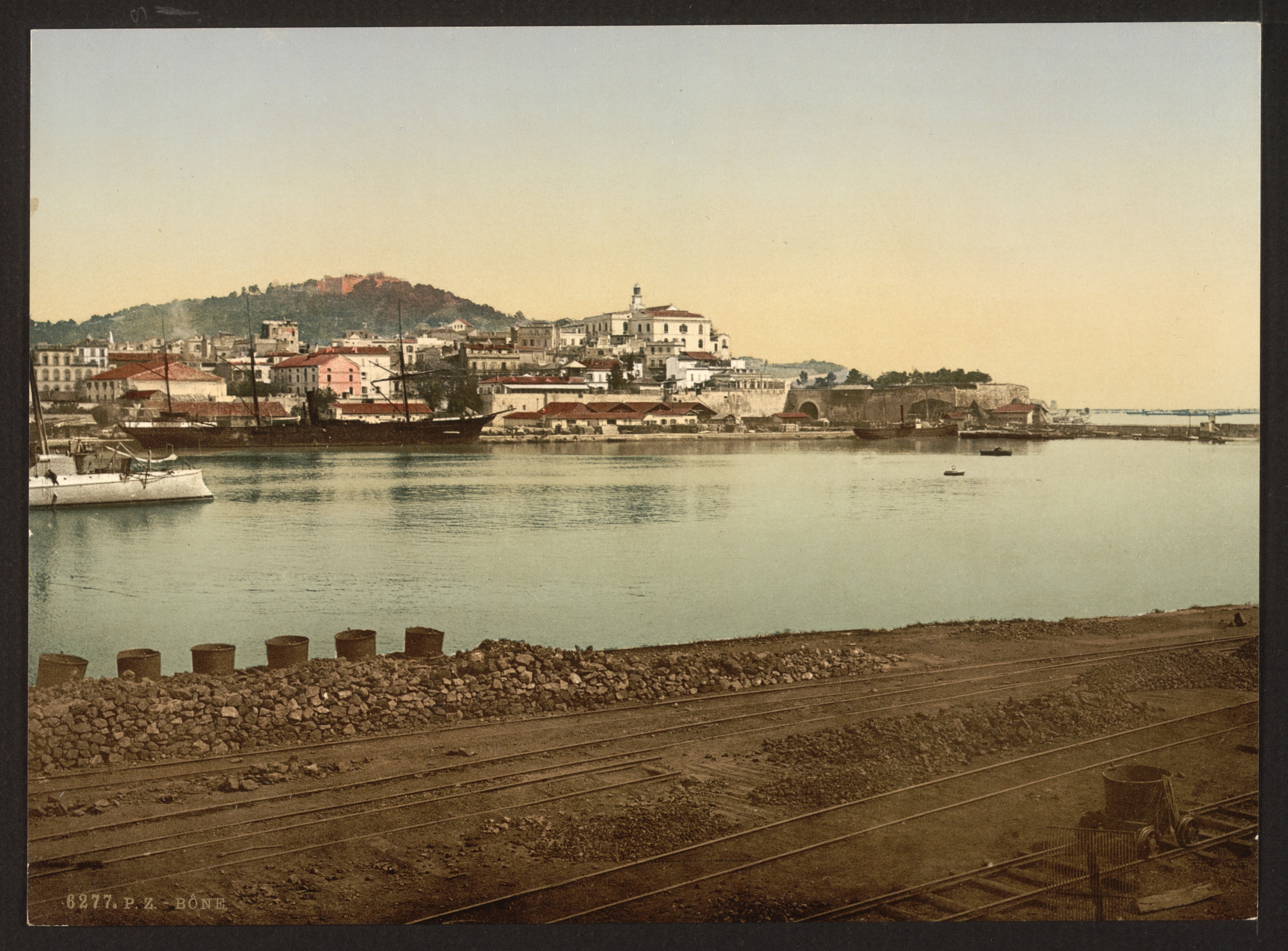|
Besbes
Besbes ( ar, بسباس) is a city in Algeria. It was founded by the French in the early 19th century 1868 as a colonial district "Commune". It was given the name of Randon after the French Army general Jacques Louis Randon, but the local population used to call the area "Besbes" which was given to the city as a formal name after Algeria's independence in 1962. Besbes is located in the west of El Tarf Province, 24 km to the south of Annaba Annaba ( ar, عنّابة, "Place of the Jujubes"; ber, Aânavaen), formerly known as Bon, Bona and Bône, is a seaport city in the northeastern corner of Algeria, close to the border with Tunisia. Annaba is near the small Seybouse River .... The city is surrounded by agricultural land (Annaba plain). During the French rule, the new village was inhabited by rich Pied-Noir families who own most of the surrounding farms. Well before the arrival of the French, there were four big families including the Nacer, Dorbani, Doukani an ... [...More Info...] [...Related Items...] OR: [Wikipedia] [Google] [Baidu] |
El Tarf Province
El Taref ( ar, ولاية الطارف) is a province (''wilaya'') of Algeria. El Kala is a port town in this province. El Taref is the capital city. El Kala, a port town in this province, is home to ''El Kala National Park''. History The province was created from parts of Annaba Province and Guelma Province in 1984. Administrative divisions It is made up of 7 districts, divided into 24 municipalities. Districts # Ben M'Hidi # Besbes # Bouhadjar # Boutheldja # Dréan # El Kala # El Taref Communes # Ain El Assel # Ain Kerma # Asfour # Ben Mehdi # Beni Amar # Berrihane # Besbes # Bougous # Bouhadjar # Bouteldja # Chebaita Mokhtar # Chefia # Chihani # Dréan # El Aioun (Algeria) # El Chatt # El Kala El Kala ( ar, القالة, Latin ''Thinisa in Numidia'') is a seaport of Algeria, in El Tarf Province, 56 miles (90 km) by rail east of Annaba and 10 miles (16 km) west of the Tunisian frontier. It is the centre of the Algerian and Tunis ... # El Tare ... [...More Info...] [...Related Items...] OR: [Wikipedia] [Google] [Baidu] |
Algeria
) , image_map = Algeria (centered orthographic projection).svg , map_caption = , image_map2 = , capital = Algiers , coordinates = , largest_city = capital , religion = , official_languages = , languages_type = Other languages , languages = Algerian Arabic (Darja) French , ethnic_groups = , demonym = Algerian , government_type = Unitary semi-presidential republic , leader_title1 = President , leader_name1 = Abdelmadjid Tebboune , leader_title2 = Prime Minister , leader_name2 = Aymen Benabderrahmane , leader_title3 = Council President , leader_name3 = Salah Goudjil , leader_title4 = Assembly President , leader_name4 = Ibrahim Boughali , legislature = Parliament , upper_house = Council of the Nation , lower_house ... [...More Info...] [...Related Items...] OR: [Wikipedia] [Google] [Baidu] |
Jacques Louis Randon
Jacques Louis César Alexandre Randon, 1st Count Randon (25 March 1795 – 16 January 1871) was a French military and political leader, also Marshal of France and governor of Algeria. Early life He was born at Grenoble in Dauphiné, of a Protestant family. Later in life he converted to Catholicism, under the influence of his second wife. He was a nephew of General Jean-Gabriel, Count Marchand, Also a Revolutionary Antoine-Joseph Barnave was a first cousin of his mother. He enlisted in the French Army at sixteen, joined his uncle Marchand in Warsaw and was promoted to sergeant on 11 April 1812. He took part in the Russian Campaign, the taking of Moscow and the retreat back. He then fought in Napoleon's campaigns in Germany and France, notably at the battles of Lützen, Bautzen and Leipzig. Middle life He was Minister of War from January to October 1851, after which he was appointed Governor-General of Algerie (11 December 1851 to 31 August 1858). Although initially not in favour ... [...More Info...] [...Related Items...] OR: [Wikipedia] [Google] [Baidu] |
Annaba
Annaba ( ar, عنّابة, "Place of the Jujubes"; ber, Aânavaen), formerly known as Bon, Bona and Bône, is a seaport city in the northeastern corner of Algeria, close to the border with Tunisia. Annaba is near the small Seybouse River and is in the Annaba Province. With a population of about 464,740 (2019) and 1,000,000 for the metropole, Annaba is the third-largest city and the leading industrial center in Algeria. Annaba is a coastal city that underwent significant growth during the 20th century. Annaba has a metropolitan area with a higher population density than the other metropolitan areas of the Algerian coastline, such as Oran and Algiers. Much of eastern and southern Algeria uses the services, equipment and infrastructure of Annaba. Economically, it is the centre for various economic activities, such as industry, transportation, finance, and tourism. Names Present-day Annaba grew up on the site of Aphrodisium, the seaport of the Roman city . (The modern city ... [...More Info...] [...Related Items...] OR: [Wikipedia] [Google] [Baidu] |
French Algeria
French Algeria (french: Alger to 1839, then afterwards; unofficially , ar, الجزائر المستعمرة), also known as Colonial Algeria, was the period of French colonisation of Algeria. French rule in the region began in 1830 with the invasion of Algiers and lasted until the end of the Algerian War of Independence in 1962. While the administration of Algeria changed significantly over the 132 years of French rule, the Mediterranean coastal region of Algeria, housing the vast majority of its population, was an integral part of France from 1848 until its independence. As one of France's longest-held overseas territories, Algeria became a destination for hundreds of thousands of European immigrants known as ''colons'', and later as . However, the indigenous Muslim population remained the majority of the territory's population throughout its history. Many estimates indicates that the native Algerian population fell by one-third in the years between the French invasion a ... [...More Info...] [...Related Items...] OR: [Wikipedia] [Google] [Baidu] |
Pied-Noir
The ''Pieds-Noirs'' (; ; ''Pied-Noir''), are the people of French people, French and other White Africans of European ancestry, European descent who were born in Algeria during the French Algeria, period of French rule from 1830 to 1962; the vast majority of whom departed for Metropolitan France, mainland France as soon as Algeria gained independence or in the months following. From the French invasion on 18 June 1830 until its independence, Algeria was administratively part of France; its European population were simply called Algerians or ''colons'' (colonists), whereas the Muslim people of Algeria were called Arabs, Muslims or Indigenous peoples, Indigenous. The term ''"pied-noir"'' began to be commonly used shortly before the end of the Algerian War in 1962. As of the last census in French-ruled Algeria, taken on 1 June 1960, there were 1,050,000 non-Muslim civilians (mostly Roman Catholic Church, Catholic, but including 130,000 History of the Jews in Algeria, Algerian Jew ... [...More Info...] [...Related Items...] OR: [Wikipedia] [Google] [Baidu] |


